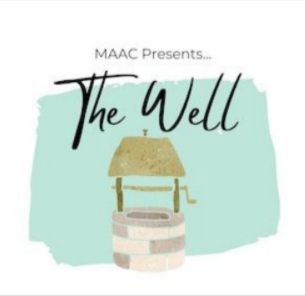Everyone can agree that 2020 was a rough year. Not only due to COVID, but also because of the many Black-American lives that were lost due to police brutality. However, 2020 did shed a light onto the reality that racism is still a problem in America. This is the reason why Theresa Noye, the advisor of multicultural student initiatives, began a new program called The Well. The Well is a collective of diverse small groups of people, both students and faculty members, who share the same goal of creating a safe space to work towards racial reconciliation and justice. Groups will use the guide “Be The Bridge University”, which is based on LaTosha Morrison’s book, “Be The Bridge”. This guide is made to be used in a racially diverse group setting, which is exactly what The Well is.
Each of the groups under The Well will be co-led by a diverse faculty/staff team who have been meeting and planning since last semester to ensure that these meetings go by smoothly. Members of each group will share their racial experiences, and together they will work through the reconciliation process. So far, there are two main groups that will be meeting on Tuesdays at 5:30 p.m. to 7 p.m. and Wednesdays at 5 p.m. to 6:30 p.m. The Tuesday group will be led by Rev. Marsha Woodard-Brown and Karen Thompson. The Wednesday group will be led by Ashlee Williams and Christyn Riehl. As of right now, for a limited time, students are still able to join either of these groups if they are interested in the mission of The Well.
The Well is a safe space for students and faculty members to discuss the reality of racism in America. We asked Victoria Awotide, a student who is in one of the two groups, about why she wanted to be part of The Well.
“As much as Eastern talks about its diversity and the steps and actions that are being taken to become aware concerning that diversity, when I heard of The Well, I thought that it would be good to be part of the conversation as someone who makes up part of the diversity. It would help me to learn how to talk to other like-minded people, but also help me talk to others who might be reluctant or ignorant when it comes to the ‘difficult’ conversations” Awotide said.
Next, in response to what she mostly wishes to get out of The Well, Awotide said, “Reading the first few chapters of the Be The Bridge book, I realized that I wasn’t the only one who is trying to be there for other POC and focus on what they experience. To me it seems that when we talk about discrimination and the system in the US, it’s always about how it’s only against black people and there’s not a lot about POC, and Indigenous people are also affected. Especially in the church where we’re all children of God, but there’s still a distinction among the races and ethnicities, and where everyone wants their own version of how Jesus looks like or which people are truly the children of God. So really, I just wish to be able to talk to other POC and collaborate with them and our respective churches to be able to teach and inform each other, and the other side, what has truly been going on”.
We also asked another student, who was thinking about participating in one of the groups and who would like to remain anonymous, the same two questions.
“I initially wanted to be part of the well because I was thinking that it would be good for me to be in another space where I can hear other people’s problems and the solution. I left recently because it was something I didn’t want to commit to now and then be in and out because of being too busy” he said.
For the second question about what he would have mostly wanted to get out of The Well, he said, “I think what I would mostly want to get out of it is finding a way to frame a constructive conversation about race-based issues”.
Overall, The Well is a really great idea for diverse people to come together in a safe space to talk about race relations that people still deal with today.

